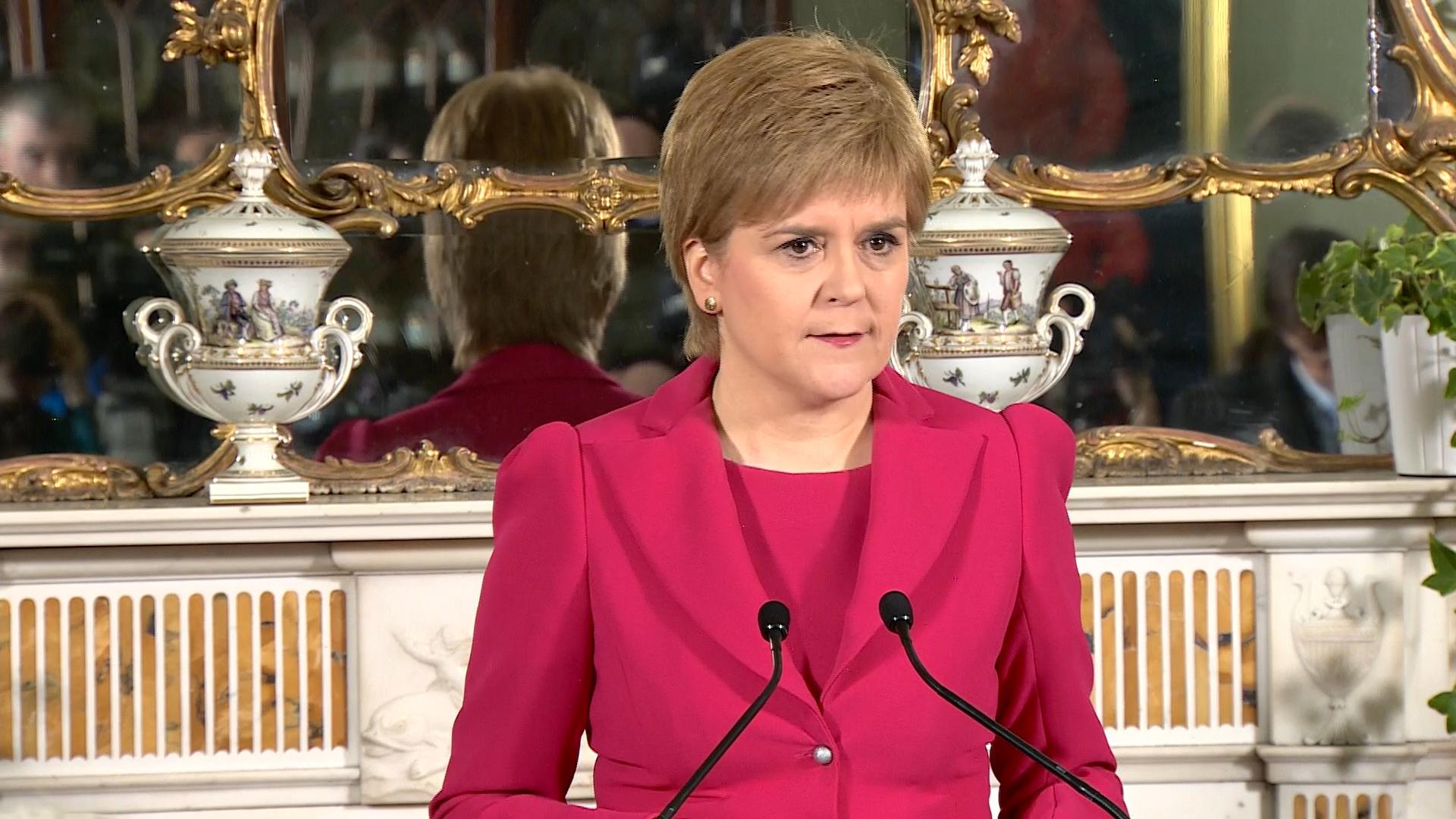Indyref2: What is the SNP's approach to EU membership?
- Published
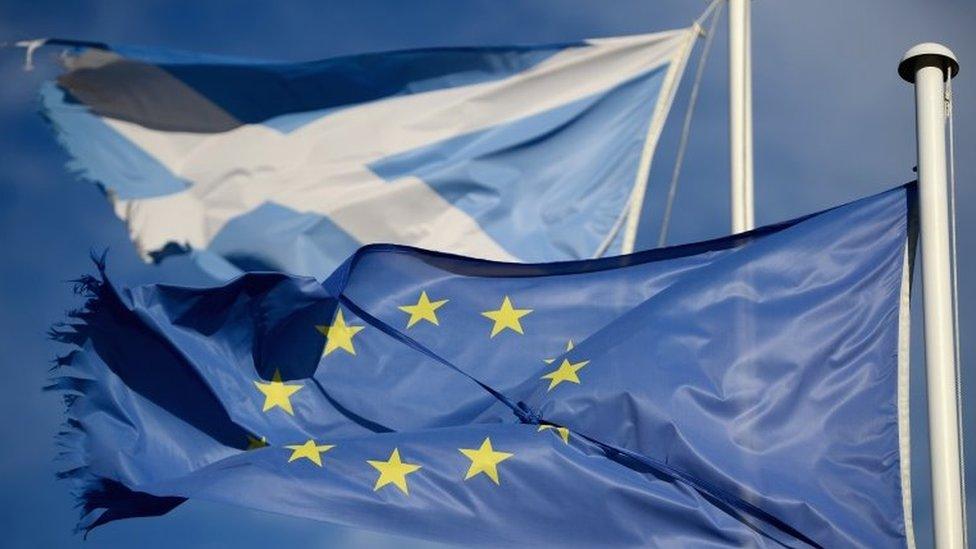
Questions have been raised about the Scottish government's plans for EU membership if they were to win a second independence referendum - so what has their position been, and what is it now?
Theresa May keeps saying that an independent Scotland would be out of the EU.
However much she might wish that to be otherwise, I have not heard Nicola Sturgeon dispute the prime minister's claim.
Indeed, her timescale for a second independence referendum seems to acknowledge that as a possibility at the very least.
The first minister wants the vote between autumn 2018 and spring 2019 - just before or just after Brexit negotiations end.
If Scotland voted for independence at that time, the UK as a whole might already be out of the EU or be just about to leave.
That would mean that SNP ministers need to change their policy on EU relations from what they proposed in 2014, external.
Then they promised "a smooth transition to independent EU membership".
They said this could be agreed in the 18 months between a "yes" vote and the date of independence.
And they said a traditional membership application under Article 49 of the Treaty of the European Union would not be required.
They proposed using the general provisions of Article 48 instead.
You may remember this special arrangement was rejected by - among others - Jose Manuel Barosso, the then President of the EU commission.
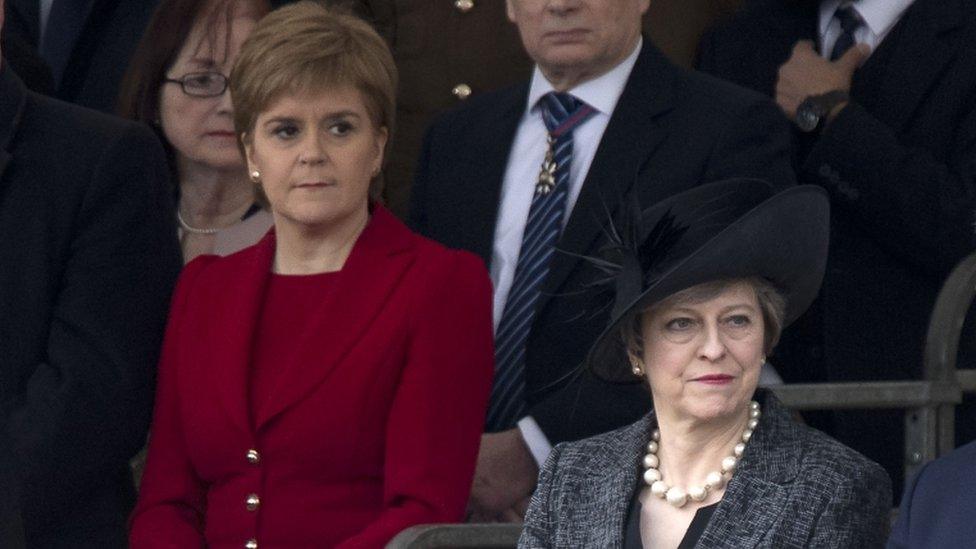
Theresa May says an independent Scotland would be out of the EU - and Nicola Sturgeon hasn't denied it
Anyway, how might the SNP approach be different in the context of Brexit?
I do not think Nicola Sturgeon will formally drop her policy of seeking full EU membership.
But I do think she might propose a step-by-step route to achieving that.
In other words, an independent Scotland could initially seek a Norway-style relationship with the EU.
That is, membership of the European Economic Area (the single market) through membership of the European Free Trade Association.
Nicola Sturgeon previously said she would accept Brexit and not call for an independence referendum if Scotland could achieve this status *within* the UK., external
Membership of the EEA would require the approval of all EU member states.
It would be far less contentious than full EU membership for countries like Spain, keen to discourage their own nationalist movements.
EEA membership might also be easier to sell to independence supporters, external who voted to leave the EU in 2016.
From this position, an independent Scotland could then choose to apply for full EU membership.
What is less clear is whether or not the Scottish government would propose deciding this through a further referendum.
- Published15 March 2017
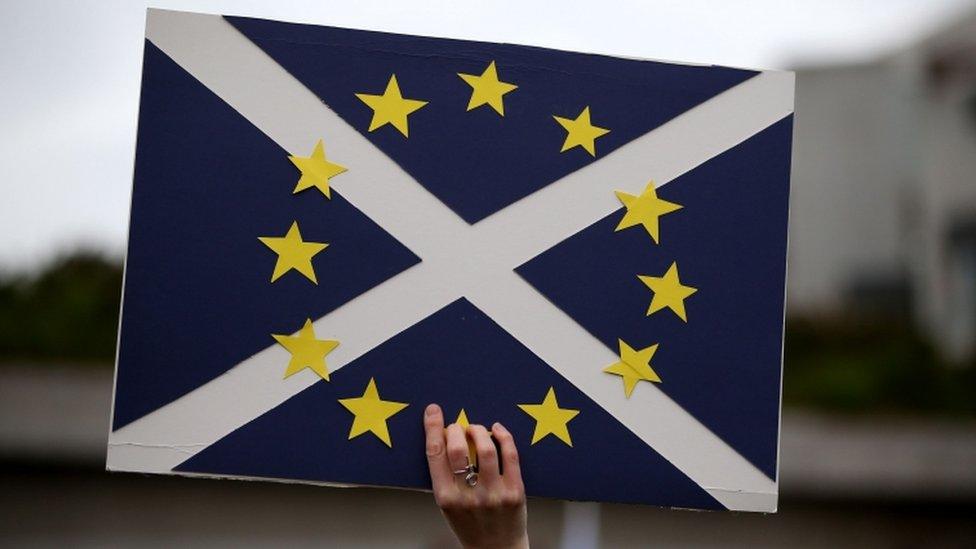
- Published14 March 2017
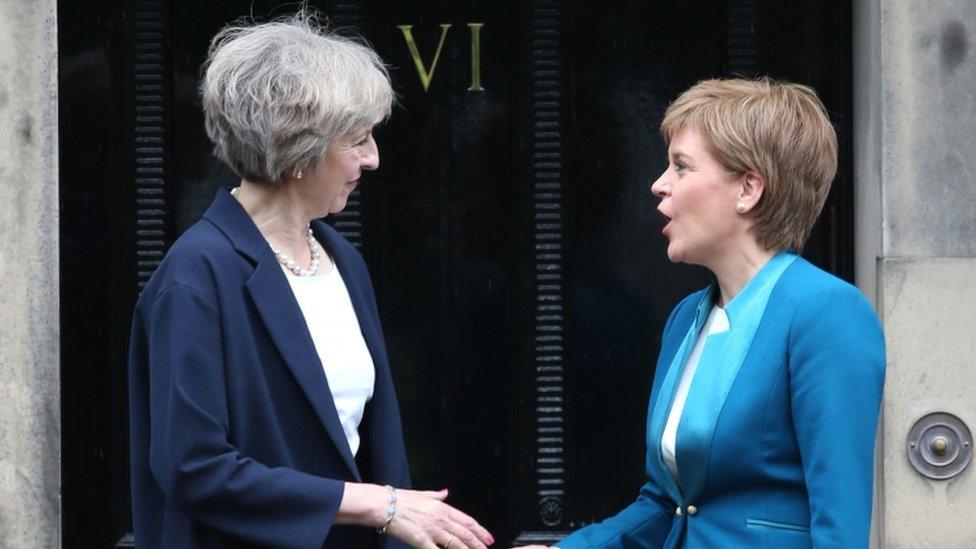
- Published13 March 2017
